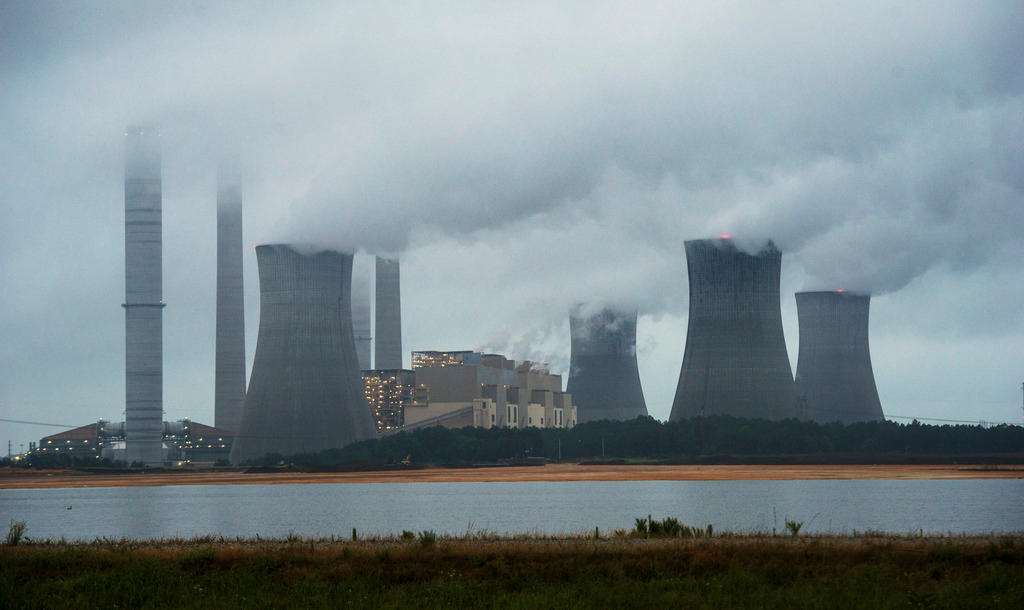Swiss investments not aligned with climate commitments

Assets managed by Swiss pension funds and insurance companies are likely to be affected by a transition to a low-carbon emissions economy, according to a climate compatibility assessment funded by the government.
One of the aims of the Paris Agreement, which was ratified by Switzerland earlier this month, is to align financial flows towards low-emissions pathways so as to limit global warming to 2°C compared with pre-industrial levels.
However, a test carried out on 79 pension funds and insurance companies – which manage two-thirds of all Swiss assets at CHF376 billion ($381 billion) – shows that investments made in most sectors correspond to a 4-6°C temperature increase. While this may correspond to trends in the global market, it does mean firms are taking on more risk than advisable, says the reportExternal link.
Risky transition
Apart from the physical impact of higher temperatures on their portfolios, Swiss companies stand to be exposed to “transition risks”: financial and economic risks of shifting to a low-carbon economy. Transition risks are especially large in high CO2 emitting sectors: fossil-based energy production, electricity generation, transport and industry.
In terms of energy investment, portfolios assessed have an exposure of 50-60% to coal and gas-fired plants compared with 10-15% for renewables. This could be risky given that the International Energy Agency (IEA) has forecast a 40% global decline in coal power over the next 25 years with renewable energy expected to grow fivefold by 2040.
When it comes to industry, Swiss firms have investments in companies that account for 40% of global cement production and 26% of global steel production: both of which are high CO2-emitting industries.
There is great divergence on firms’ exposure to transition risks: from the low single digits to 40% of the portfolio at risk. The authors estimated that if the world does succeed in implementing a 2°C scenario, Swiss pension fund and insurance equity portfolios stand to lose 10% of their market share in the next five years.

In compliance with the JTI standards
More: SWI swissinfo.ch certified by the Journalism Trust Initiative











You can find an overview of ongoing debates with our journalists here . Please join us!
If you want to start a conversation about a topic raised in this article or want to report factual errors, email us at english@swissinfo.ch.